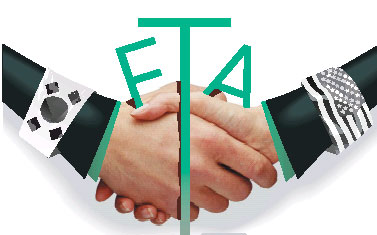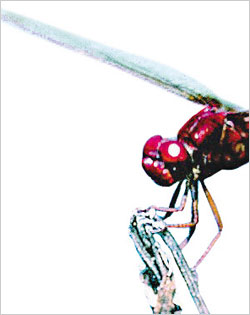Korean FTA negotiators primed on US bugging tricks

Chosunilbo (Seoul) Apr.9, 2006
Korean FTA Negotiators Primed on U.S. Bugging Tricks
Beware of the dragonfly : it may be a bugging robot disguised as a harmless insect. No, the advice does not come from a mental patient convinced the government is spying on his laundry bills : it was one of the security tips issued during last week’s two-day workshop for 120 Korean delegates in the nation’s impending free-trade negotiations with the U.S. The workshop was designed to help delegates guard their negotiation strategies from prying ears when the talks start in June.
Security authorities at the workshop revealed the extraordinary inventiveness of U.S.’s intelligence surveillance power, which indeed stretches to a dragonfly robot that records conversation with the microphones concealed in its trunk as it sluggishly drones about the room.
One government official set delegates on edge when he warned, “There is no telling what lengths the U.S. with its technological might will go to if it decides to eavesdrop.” Sure enough, the CIA also has other members of the insect kingdom at its disposal, besides using a coin-sized camera that can take 11 pictures.
Security authorities drew special attention to a U.S. surveillance program dubbed “Echelon” and administered by the U.S. National Security Agency (NSA). Data gathered by Echelon’s 120 spy satellites worldwide and analyzed by a voice-recognizing super computer is believed to enable NSA to intercept as many as 3 billion communications.

The official advised negotiators to assume that eavesdropping is routine, pointing to the bizarre episode of the Boeing 767-300ER China bought from the U.S. in 2000 for use as a presidential airplane. No fewer than 20 listening devices were found in the aircraft, including in the bathroom and the headboard of the presidential bed.
The bugging of UN Secretary-General Kofi Annan’s office in the run-up to the Iraq war is only the tip of the iceberg. Private firms, too, do it in negotiating business deals, a fact that should awaken security consciousness among local companies, the official added.
Among the security instructions given at the workshop are : use passwords instead of keywords for documents, only use an e-mail system vouchsafed by the National Intelligence Service, and do not use photocopiers at hotels and business centers since they can leak information.
An official with the Ministry of Foreign Affairs and Trade said the workshop had been organized not because it was concluded that U.S. negotiators will bug their Korean counterparts but to instill security awareness among delegates.





